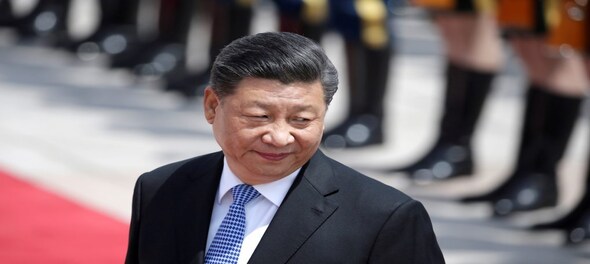
China’s far west Xinjiang region will implement the nation’s first rules on encouraging ethnic groups to mingle, as part of President Xi Jinping’s goal to forge one national identity.
The Ili Kazakh autonomous prefecture will adopt measures on Monday including the promotion of mixed housing and the creation of more parks and public areas that showcase what the government refers to as zhonghua minzu, or one “Chinese nation.”
The ruling Communist Party has long been pushing assimilation policies in diverse regions to create a unified national identity, anchored on the culture of the majority Han group. Those actions have fueled criticism of human rights violations from the US government and other Western democracies. Beijing has denied those allegations.
The new rules represent a stepping up of those policies and are the first of their kind, according to the official Xinjiang Daily. They warn officials not to neglect their duties or face punishment, without elaborating on the punitive consequences.
Under the new regulation, local officials should:
The Ili prefecture, which shares a border with Kazakhstan, Mongolia and Russia, is one of the most ethnically diverse administrative areas in China with relatively large Kazakh and Uyghur communities.
China already has a long-running labor transfer program where people from rural areas are moved to cities, a practice that critics say can gradually weaken ethnic minorities’ cultural and religious ties with their original homes.
This week, China sanctioned a US company and two researchers over work related to Xinjiang, escalating a dispute between the nations over allegations of forced labor. That followed the sanctioning of two Chinese officials by Washington earlier this month, including a former police chief in the Ili area, over alleged rights abuses.
The new rules represent second phase of the government’s ethnic policies, said Arfat Erkin, a Uyghur activist originally from the region who now lives in the US. He said under the initial stint from 2016 to 2020, the measures were “more extreme, large scale and mostly extralegal.”
“It shows a full shift from promoting and forcing ethnic unity between local and settler populations to now forcing assimilation,” he added.
Check out our in-depth Market Coverage, Business News & get real-time Stock Market Updates on CNBC-TV18. Also, Watch our channels CNBC-TV18, CNBC Awaaz and CNBC Bajar Live on-the-go!


Lok Sabha Election 2024: What rural Delhi wants
May 16, 2024 10:10 PM
Over 50 onion farmers detained in Nashik ahead of PM Modi's visit
May 16, 2024 11:14 AM
Why Google CEO is cautiously optimistic about the election year
May 16, 2024 9:51 AM
Mark Mobius reveals how markets will react if NDA wins 400+ Lok Sabha seats
May 15, 2024 8:09 PM

